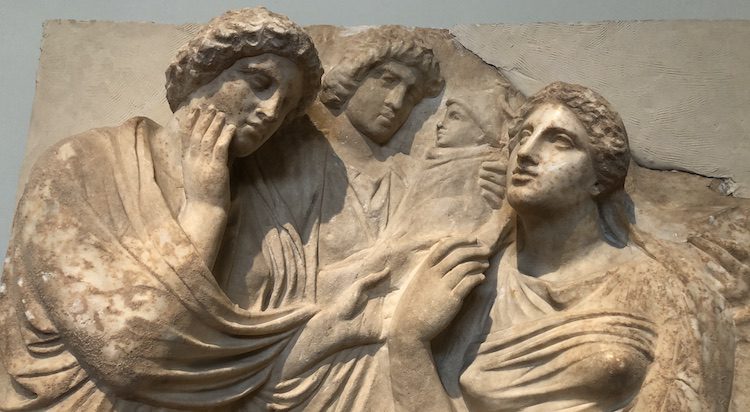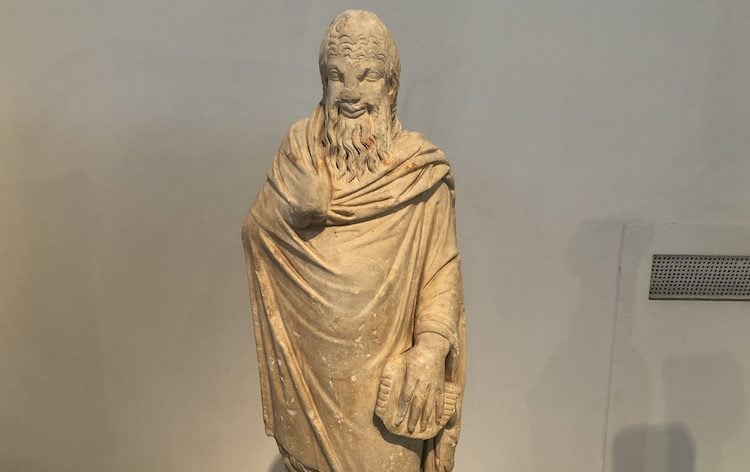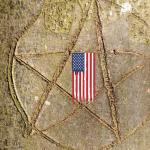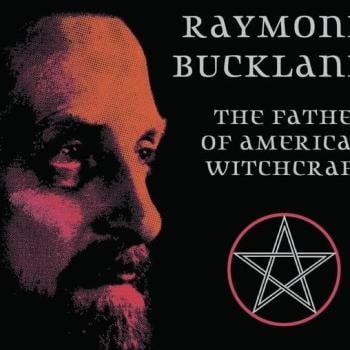The word “Pagan” (or if you prefer “pagan”) has always been problematic. Originally meaning “rustic” and/or “one not enrolled in the army of Christ,” it’s been used in a variety of ways over the last 2000 years. For many years “pagan” generally referred to anyone outside of an Abrahamic faith, and was used to describe the religions of the Ancient World. That latter usage has always been especially troubling because it implies a commonality between hundreds (if not thousands) of diverse religious beliefs. “Pagan” in regards to anything outside of Judaism/Islam/Christianity strips many of the world’s richest spiritualities of their own unique identities.

Most of you reading this article probably look upon the word Pagan rather favorably, and it’s likely that at least some of you capitalize it. Beginning in the 1960’s the word “Pagan” began to be used to signify a variety of emerging spiritual traditions, most of them connected through magickal practice, love of the Earth, and spiritual ideas either rooted in or thought to be rooted in the past. It’s rather telling that the first book associated with a Modern Pagan movement, 1954’s Witchcraft Today only uses the word “pagan” five times, and the book’s author Gerald Gardner never refers to Modern Witches as Pagans in his text.
The closest Gardner get gets to saying that his Witches were Pagans comes in a passage detailing Britain’s religious history:
“The kings and townspeople accepted it, but the country people, the pagans (pagani—people dwelling in the country), the villagers, the heathens (the ‘people of the heaths’), were mainly of the old faith, which is why we use those two names to describe non-Christians to this day.”
and even then the connection has to be inferred to some degree. It’s no wonder then that at least some people define Modern Paganism as beginning in the late 1960’s, and not with the Wiccan-Witchcraft of Gardner.
When I was beginning my Pagan journey back in the 1990’s “Paganism” as an umbrella term for Witchcraft, Wicca, Druidry, Heathenry, Thelema, and various other traditions was at the height of its popularity. Most of us realized back then that we weren’t all doing exactly the same thing, but felt as if there enough points of commonality that “Pagan” made at least a bit of sense. In smaller communities this commonality was perhaps even more important, there just weren’t that many of us, and to reach the critical mass needed for group practice various traditions often had to come together.

Since at least the early 2000’s backlash to the word Pagan has become a regular feature of blogs and message boards, and rightfully so. Atheist-leaning, non-religious Witches don’t share much with those looking to recreate the rituals and rites of Ancient Greece, and as a Wiccan-Witch it’s hard for me to find shared identity with non-believers in magick. Because of this it’s often argued that “Paganism” is less a religious grouping and more of a social one.
“Paganism” as a larger construct is often a matter of convenience. Because there aren’t that many of us who gather under this umbrella (all things considered) it’s advantageous to share spaces (in the real world and online), festivals, products, services, etc. Even many people who actively campaign against the word Pagan still live in the “Pagan world” that is they attend events labeled as Pagan and utilize platforms (like this one) and their presence is generally a welcome one.
Much of the negativity around the word Pagan over the last fifteen years comes from Pagan too often being used as a synonym for “Wicca.” This was a huge problem in the 1990’s and books on “Paganism” were often just Wicca 101 primers, with perhaps a chapter or two dedicated to other Pagan traditions such as Druidry. Rituals at festivals and other gatherings generally defaulted to eclectic Wiccan ritual too. Some of this is because the earliest expressions of eclectic Wicca (found in the “Outer Court” structure of initiatory covens) labeled non-initiate circles “Pagan,” an unfortunate, though non malicious, choice of words.
As someone who is blessed enough to do a bit of traveling here and there, the contentious nature of the word “Pagan” often feels like an online battle. When I’m at the average run of the mill festival I hear the word “Pagan” tossed around as a self-identity with frequency and rarely a disclaimer. It’s really only online and at some of the larger festivals that I really encounter backlash to the term.

The peril of the word Pagan has always come from its inadequateness as an umbrella term for the diverse ideas and spiritualities that are associated with it. It has always implied a unity that doesn’t exist, which makes anything that deviates from its more expected norms contentious. Though Wicca remains the largest “Pagan” tradition in the Modern World* it is no longer the default type of Witchcraft and/or ethical system. That’s why we see lots of “but what about the Wiccan Rede” responses to certain magickal operations, along with an equal number of folks engaged in more aggressive magickal practice.
The sheer amount of people writing online has revealed just how diverse the “Pagan Community” is, and that diversity often reveals the cracks in our rather tenuous alliances. Different world views mean more than different ways of practicing, and they often encompass completely different ethical systems and ideas about what it truly means to be Pagan. There are also far too many people who write in absolutes, condemning practices different from their own and creating unneeded tensions.
As we fight over the word Pagan it’s worth nothing that there’s a positive part to the word too. The acceptance of the term by many in mainstream culture has helped to establish and secure religious rights for dozens of different “Pagan” groups. Over this past weekend someone was telling me about going to the hospital and being able to identify as “Pagan” in regard to religious affiliation, an important step. The Pagan grouping has also allowed us to join together to secure spaces on platforms that might otherwise not know we exist. We are a community of artists, writers, innovators, and creators, that’s something to be proud of. Our linked community has given us festivals, book publishers, herbalists, and so much more.
Perhaps even more importantly, I think the Pagan world is full of good people. We are far from perfect, and have issues, but there are more good eggs in our basket than rotten ones. The Pagan world that I inhabit is full of gracious acts and well meaning individuals. Paganism has brought many of the people I know closer to the earth, higher powers, and a better understanding of just what it takes to be a decent person. Terrible acts have been committed in the name of Paganism, and there are no excuses for such things, but I like to think that the promise of Paganism is something we can still aspire to.
*One rule of this blog is that I identify people as THEY self-identify. We don’t get to say that Hindus are Pagans because it makes us feel better. Hindus are Hindus, and while some of them seem to like us, many more do not (and you’d find little in common with them too).

















